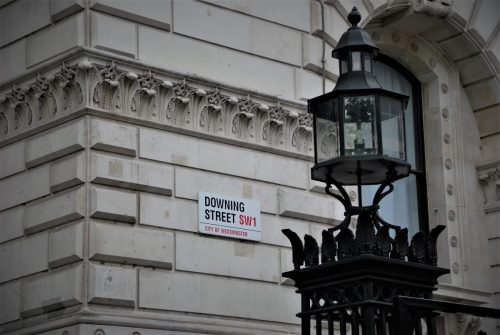
The UK property market has been braced for a (hard) Brexit battering for a while but has performed reasonably well bar a market correction end of 2018. The not so insignificant fact that UK hasn’t yet left the EU must have had a part to play in it.
There are however fresh jitters for investors, landlordsThe owner of a property that is rented to a Tenant. This could be the Freeholder that has created a Lease or Leases, but the term could also be used to cover the relationship between a more temporary relationship; such as a BTL Landlord and Rental Tenant. and agents in the looming possibility of an even bigger threat to their property portfolio – in the shape of Jeremy Corbyn.
While the property industry as a whole saw a sharp slowdown ahead of the original 29 March Brexit deadline, the high number of mortgageAn agreement that allows a Borrower to borrow money from a Lender, by using a property as security for the Loan granted. The Lender will take a charge over the property to secure their Loan. approvals (April had the highest since February 2017) would suggest the market is still resilient despite the ‘long-standing threat of a Corbyn government’.
Labour under Corbyn is a form that hasn’t been around since the 1970s and have been signalling the changes they would enforce should Labour return to government, most notably the control of house prices:
- One of the proposals is for Bank of England to issue a ‘house price growth guide’ similar to the one for inflation, which will be kept under review through the Bank’s Monetary Policy Committee. The control of mortgageAn agreement that allows a Borrower to borrow money from a Lender, by using a property as security for the Loan granted. The Lender will take a charge over the property to secure their Loan. lending will be a method of reducing house price growth if it exceeds any target figure introduced by Labour. While this isn’t official Labour policy it has been floated by the Shadow Housing Minister and has caused concern.
- Labour could go one step further and introduce a cap in house price growth, in the same way the Bank of England is targeted to keep inflation at a certain level. In theory, a target could vary from region to region. Labour cites this as a bid to close the gap between property prices and average incomes.
Labour also wants to ‘put power in the hands of tenants’ with a £20million of funding for renters’ unions as announced by the shadow housing secretary Jon Healey at the last conference. The new renters’ unions would provide advice and representation for the 11.5 million private renters in the UK.
- The idea is that the unions would mirror organisations such as the National LandlordsThe owner of a property that is rented to a Tenant. This could be the Freeholder that has created a Lease or Leases, but the term could also be used to cover the relationship between a more temporary relationship; such as a BTL Landlord and Rental Tenant. Association (NLA), which represents the UK’s 30,000 private landlordsThe owner of a property that is rented to a Tenant. This could be the Freeholder that has created a Lease or Leases, but the term could also be used to cover the relationship between a more temporary relationship; such as a BTL Landlord and Rental Tenant.. The NLA has welcomed the announcement on funding for renters’ unions, however adding that the unions should remain ‘politically neutral.’
- Introduction of ‘indefinite’ tenancies to offer greater securityAn Asset used as Collateral for a Loan. to renters should only strike fear in rogue landlordsThe owner of a property that is rented to a Tenant. This could be the Freeholder that has created a Lease or Leases, but the term could also be used to cover the relationship between a more temporary relationship; such as a BTL Landlord and Rental Tenant.. It should be welcomed by Build-to-Lend developersAn individual or entity that buys and improves property, or builds entirely new properties, that are typically sold at completion of the project. benefiting from longer commitments from tenantsA person that occupies a property owned by somebody else, and pays rent for that privilege. and will drive the growth of PRSUsed as a collective term by the government to classify and private rental properties, however it has taken more prominence recently as the government has sought to promote Build-to-Rent (B2R) as a way for the UK to meet its chronic shortage of housing. The sector is very attractive to institutions such as Pension Funds and Insurance Companies. segment of the market.
- The TenantA person that occupies a property owned by somebody else, and pays rent for that privilege. Fees Act coming in to force this weekend (1st June) will end letting and other upfront fees, evidence that tenantA person that occupies a property owned by somebody else, and pays rent for that privilege. welfare has taken importance by the Tories as well.
High Net WorthTypically used by Private Banks, to describe an individual who's NAV is above a certain level deemed to be above the normal range by financial institutions. In our mind, we seem to get the impression that if you have a NAV of more than £ 10m then most Private Bnaks would deem you a HNW (although this breaks with the regulatory definition - see HNW Exemption). Also see UHNW. More (HNWTypically used by Private Banks, to describe an individual who's NAV is above a certain level deemed to be above the normal range by financial institutions. In our mind, we seem to get the impression that if you have a NAV of more than £ 10m then most Private Bnaks would deem you a HNW (although this breaks with the regulatory definition - see HNW Exemption). Also see UHNW. More) individuals and overseas investors are more cautious on how Labour would tax wealth, income and inheritance and pose a far greater concern than the fallout from a hard Brexit.
A ‘Mansion Tax’ or limitations placed in property ownership will also be on the cards should Corbyn’s Labour come into power and HNWTypically used by Private Banks, to describe an individual who's NAV is above a certain level deemed to be above the normal range by financial institutions. In our mind, we seem to get the impression that if you have a NAV of more than £ 10m then most Private Bnaks would deem you a HNW (although this breaks with the regulatory definition - see HNW Exemption). Also see UHNW. More and Ultra-HNW individuals wouldn’t risk tying their wealth up in property, by nature, an immovable assetAn item of property owned by a person or company, that has a value and could be used as Security for a Loan.. However, the declining property prices and a weakened Pound will be attractive to overseas investors.
- A much talked about Wealth tax is sure to encourage capitalThe value of a financial asset in monetary terms. See Capital Value. flight, inhibit investment and lead to the depreciation of the Stirling.
- While the UHNWWe're not really sure where the distinction lies between HNW and UHNW. Some Private Banks seem to draw the line at £ 25m-£ 30m NAV, whereas if you are worth more than that you are deemed UHNW and below you are merely a HNW. Others are at £ 50m, and others are at £ 100m+. It's one of these questions, that if you have to ask you're probably a HNW rather than UHNW! have the resources to move to lower tax jurisdictions and those with ‘non-dom’ status and substantial assetsAn item of property owned by a person or company, that has a value and could be used as Security for a Loan. outside the UK would be well advised to settle them in an offshore trust.
Perhaps it may yet be a case of ‘the bark being worse than the bite’, as Jeremy Corbyn is unlikely to command a parliamentary majority and will inherit an economy that would need to attract and retain wealth. Without a clear majority, Corbyn may have to park his more radical taxation and redistribution policies, instead working with his own moderate MPs and those in other parties to increase investment in infrastructure, research and development, and education.
It’s been said that ‘the tax tail should not wag the dog’, and it would hold water in times of political uncertainty as well.
May 2019
Photo Credit: Jordhan Madec



